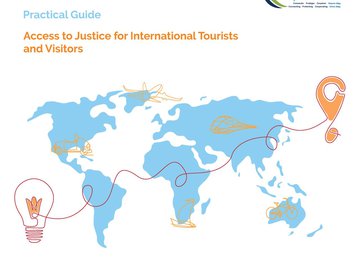Just published: HCCH Practical Guide – Access to Justice for International Tourists and Visitors
 This week the Hague Conference on Private International Law (HCCH) published the Practical Guide – Access to Justice for International Tourists and Visitors. The HCCH news item is available here.
This week the Hague Conference on Private International Law (HCCH) published the Practical Guide – Access to Justice for International Tourists and Visitors. The HCCH news item is available here.
As indicated in the Guide, this document “is intended to assist international tourists and visitors to foreign countries seeking access to justice for disputes arising from their tourism experience by providing information on online dispute resolution mechanisms that may be available and HCCH legal instruments that may be relevant in a given case.”
There are a few aspects of the Guide that are worthy of note:
First, the definitions of a visitor and a tourist are interesting.
A “visitor” is considered to mean “a traveller taking a trip to a main destination outside their usual environment, for less than a year, for any main purpose (business, leisure, or other personal purpose) other than to be employed by a resident entity in the country or place visited.”
A “tourist”: “A visitor (domestic, inbound, or outbound) is classified as a “tourist” if their trip includes an overnight stay.”
These definitions are taken from the United Nations World Tourism Organization (UNWTO).
Secondly, Part I of this Guide provides a list of online dispute resolution platforms, although some are not specific to international tourists and visitors. Among the governmental initiatives are: EU Online Dispute Resolution Platform (European Commission), Concilianet de PROFECO (Mexico) and Consumidor.gov.br (Brazil). Among the private initiatives are: Airbnb Online Resolution Centre and Endispute™.
Thirdly, Part II of this Guide sets out examples of common claims made by tourists and visitors such as lost baggage, cruise cancelled due to weather, and damage to property at hotel. These examples are merely indicative and of course do not constitute legal advice.
All in all it makes an interesting read and its layout is more easily readable on different devices. Nevertheless, it does make me wonder to what extent this document would actually help tourists and visitors in times of trouble.


